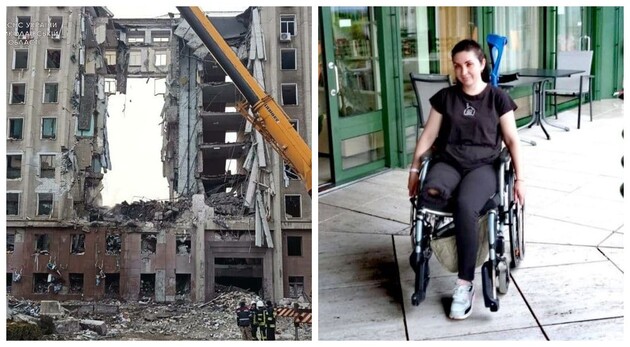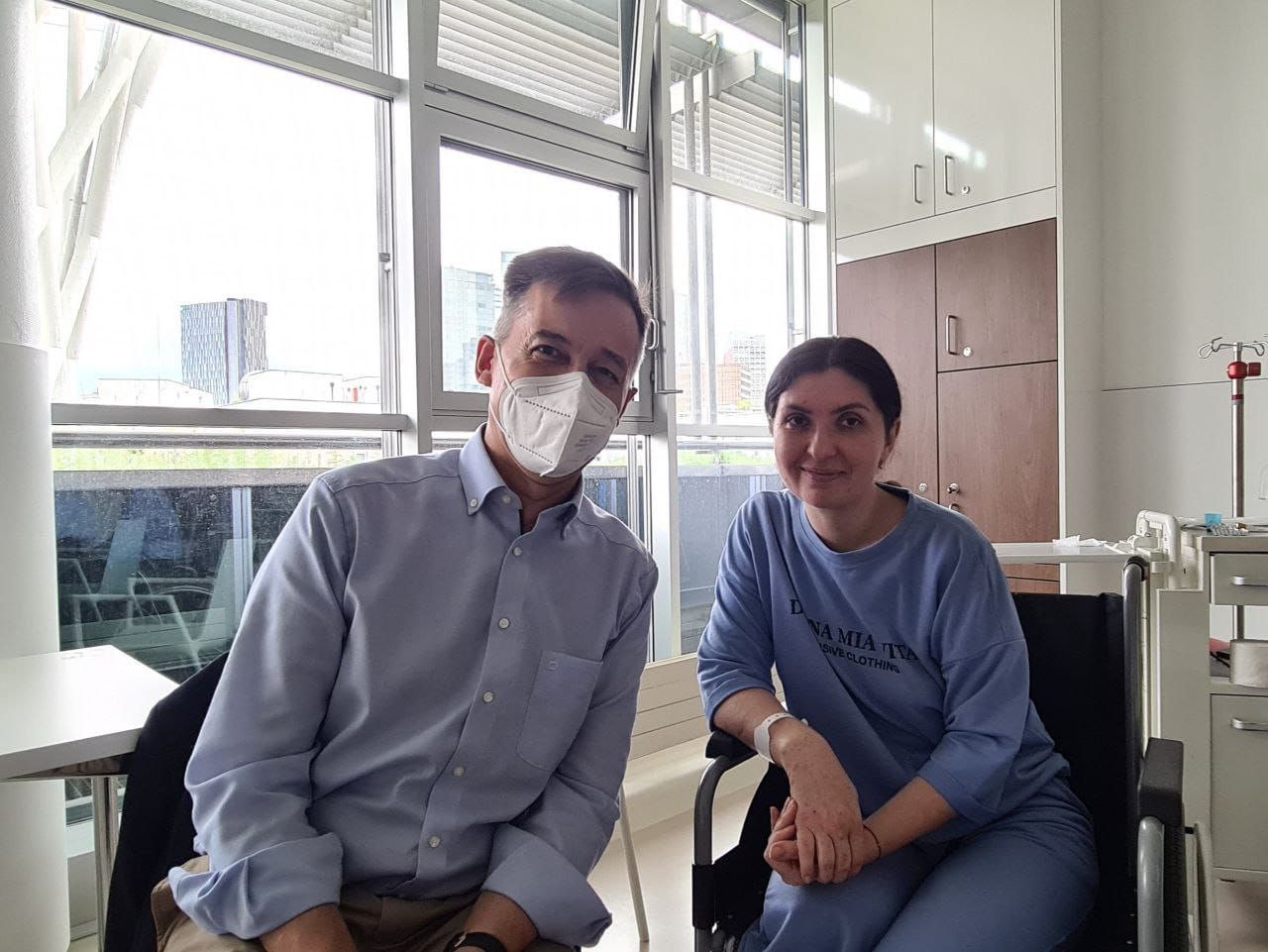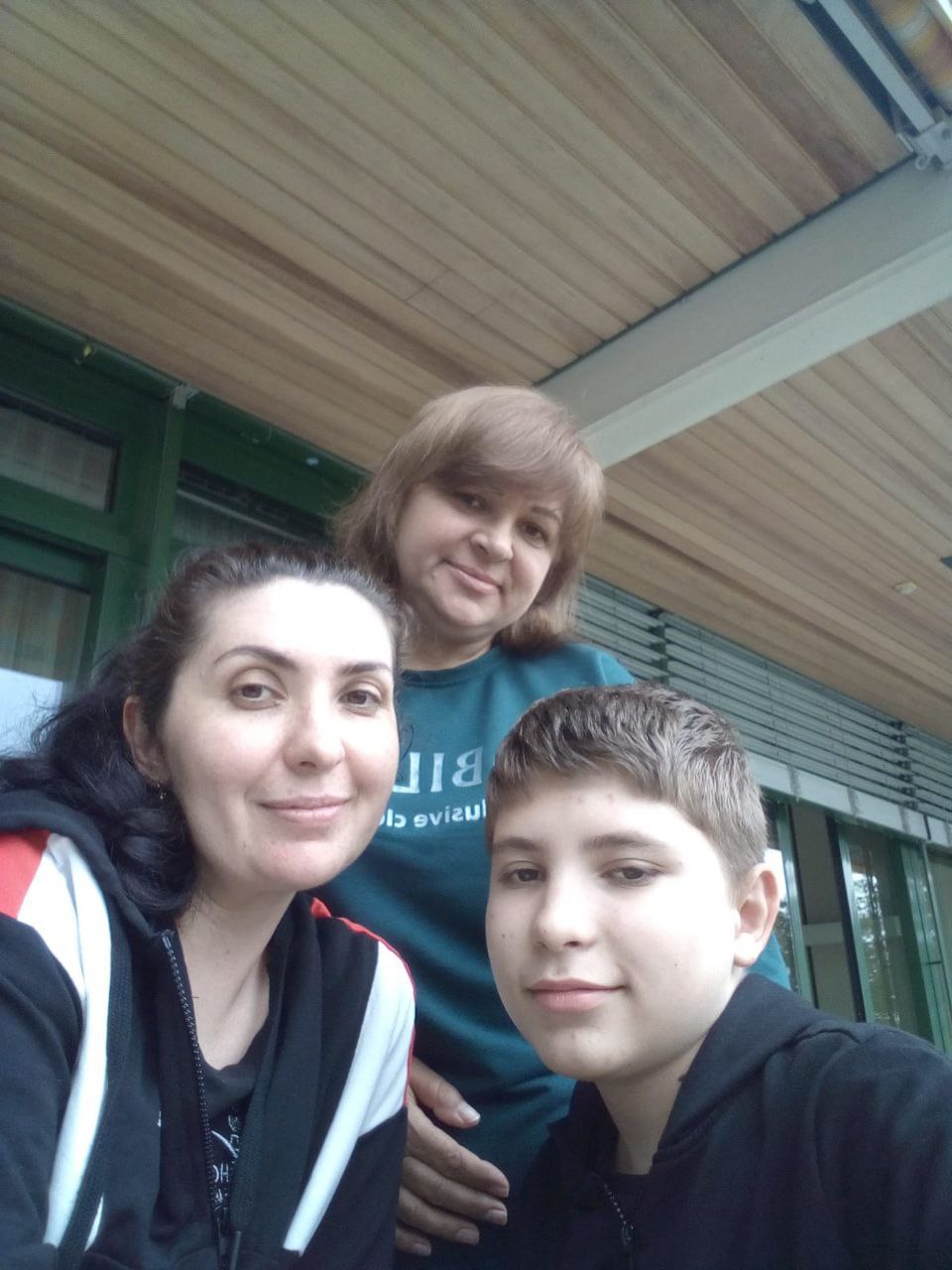“Special Rescue Operation”: Vira Panchenko, the Sole Survivor of the Fatal Workday on March 29 at the Mykolaiv Regional State Administration

On March 29, an enemy missile hit the building of the Mykolaiv Regional State Administration, resulting in over 30 dead, 30 more wounded. Anastasiia Dolhova and Nadiia Torkhova, employees of the Commercial Court of the Mykolaiv Region, located in the building of the Regional State Administration, were killed in the missile strike. Another court employee, Vira Panchenko, 37, lost a leg and is now in need of long-term treatment, post-amputation rehabilitation and prosthetics. Vira raises and supports her 11-year-old son herself, has two elderly parents and needs financial assistance to restore her health and ability to move.
Although with much effort, Vira Panchenko was taken out of Ukraine for treatment and prosthetics. ZN.UA learned Vira’s story, recounts what happened and how she feels now.
After enemy shelling, Vira with numerous shrapnel wounds of the head, torso, limbs and eyelids was taken to the emergency hospital of Mykolaiv. There, doctors stabilized the patient's condition but had to amputate her leg. Mykolaiv was under fire; therefore, it was decided to evacuate Vira to Odesa.
It was not until April 4 that the plan was executed, when traffic between the cities was restored. Earlier on, as a result of enemy attacks the bridge on the only road from Mykolaiv to Odesa had been destroyed. Vira, and her mother and son were taken by ambulance to the Odesa Regional Clinical Hospital. At the border of the two regions, Mykolaiv-based doctors handed the patient over to Odesa ambulance.
According to Natalia Bohatska, head of the South-Western Commercial Court of Appeal, the evacuation of Vira Panchenko to Odesa and her medical treatment were carried out by Nataliia Odarii, director of the Health Department of the Odesa Regional State Administration.
After the evacuation, Oleh Huzenko and Oleksandr Polivoda, head of the Joint Pathology and Endoprosthesis Center under the Odesa Regional Clinical Hospital, worked with the patient. A number of operations to remove shrapnel from the body were performed. Doctors found that the patient still needed surgery on the stump of the right thigh and prosthetics. The doctors’ readiness to perform the operation notwithstanding, it would mean that Vira Panchenko would be untransportable for another 3–4 weeks.
That said, an ever-increasing number of explosions was heard in Odesa. The emotional state of Vira Panchenko’s son, her mother and herself was extremely unstable. Meanwhile, Sergii Koziakov, associate professor at the Institute of International Relations and author of ZN.UA, was joined by Georg Stawa, Counselor for the Rule of Law at the Austrian Embassy in Belgrade for Southeast Europe. He undertook all the organizational work of transporting the patient to Austria and her treatment there.
He managed to coordinate the actions of the ministries of Moldova and Austria, organize the transportation of Vira and her son from Chisinau to Vienna and include a member of the blasted court in the assistance program led by the Office of the UN High Commissioner. Vira’s mother also flew to Vienna. The Austrian side covered all the costs outside Ukraine.
Nataliia Bohatska was able to arrange for transport to take Vira to Moldova. The Red Cross joined the transportation process.
However, as of April 12, Vira Panchenko still could not be transported further due to a high risk of thrombosis. Transportation was postponed for a few days. At that time, the emergency care clinic in Vienna was already waiting for the patient from Ukraine and Vira’s mother and son were allowed to enter the country. Not having a passport, the son was able to cross the border “for humanitarian reasons.” They were pre-registered in the necessary national systems, and the relocation itself was undertaken by the UNHCR.
Vira was transported from Odesa to Chisinau on April 19 by ambulance. In Moldova, she was waited for in one of the state hospitals to once again check transportability and launch the so-called MedEvac (medical evacuation – editor’s note) mechanism.
The Moldovan side provided housing for Vira’s son and mother at its own expense. A day later, Vira’s family flew to Vienna accompanied by a UNHCR representative. The Austrian Ministry of Internal Affairs arranged for the ambulance and stretcher on a private flight for Vira. From Vienna’s Schwechat Airport, Vira was transferred to the AUVA Rehabilitationszentrum Meidling.
According to Nataliia Bohatska, Pavlo Pushkar, Head of the Directorate-General for Human Rights and the Rule of Law of the Council of Europe, also provided assistance to Vira Panchenko.
Vira is currently in Vienna at the AUVA Rehabilitationszentrum Meidling. The patient is feeling well and is already mastering the use of a training prosthesis and learning to walk again, awaiting her prosthetic appliance.
According to Bohatska, Vira’s mother and son will stay with her in Vienna for at least six months as part of the assistance program of the Office of the UN High Commissioner under the personal care of Georg Stawa.
Read this story in russian and Ukrainian.
Please select it with the mouse and press Ctrl+Enter or Submit a bug












 Login with Google
Login with Google